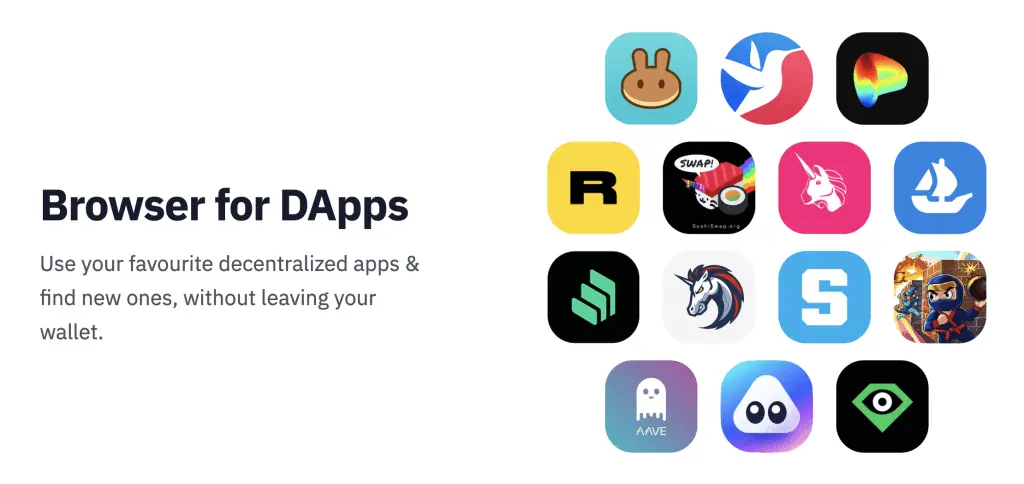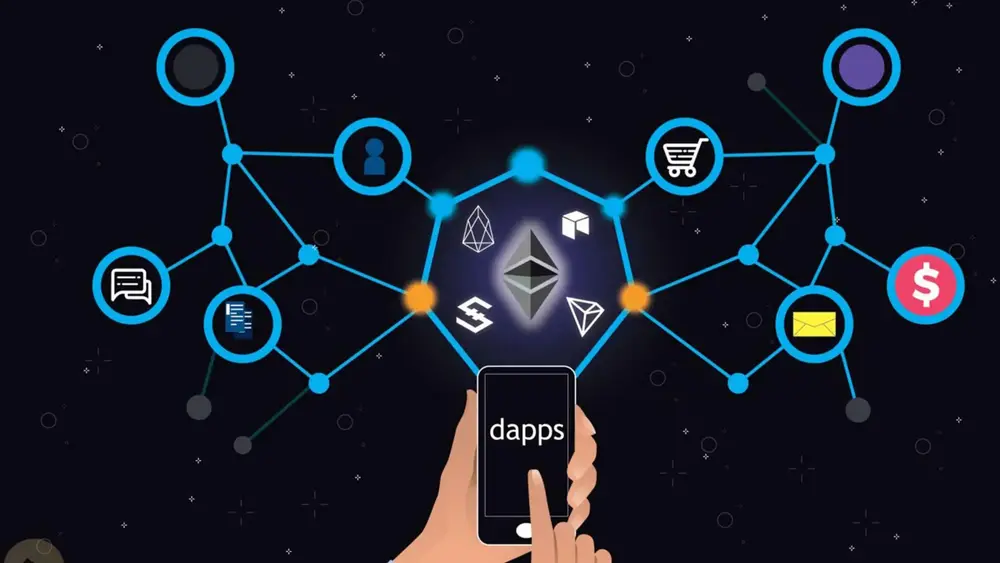Imagine managing your cryptocurrencies, exploring blockchain-based services, and engaging with cutting-edge technology—all from a single, secure browser. If you’re ready to dive into the future of the internet, a dApp browsers is your gateway to a more transparent and innovative online experience.
Table of Contents
What is a dApp Browser?

A dApp browser, short for decentralized application browser, is a specialized web browser designed to interact with decentralized applications (dApps) that operate on blockchain networks. Unlike traditional web browsers that connect to centralized servers, dApp browsers connect to blockchain networks, allowing users to interact directly with dApps in a secure, transparent, and decentralized manner. These browsers provide the necessary tools and interfaces to access and use dApps, making blockchain technology accessible to everyday users.
The most dApp browsers come with the implementation of a digital wallet, so when users use them they can handle cryptocurrency and digital assets smoothly. Several blockchain protocols are currently under development, making dApps supported by multiple platforms as a result. These will enable users to interact with decentralized finance platforms (DeFi), experience blockchain-based games, join autonomous social networks among other use cases through a dApp browser. As such, dApp browsers will remain a crucial point of entry for those who wish to explore and capitalize on the burgeoning decentralized web.
Features of dApp Browsers

dApp browsers feature tools that enhance user interaction with decentralized applications and blockchain networks.
Decentralization and Security
One of the main qualities that distinguish dApp browsers is their brand, emphasizing decentralization and security. They interact with decentralized blockchain network, unlike traditional browsers which rely on centralised servers and databases. The decentralisation, in turn, increases the security as it breaks single points of failure and closes down data breach risks. Multiple nodes store user data, making it more fail-proof and protected from attempted hacks.
dApp browsers also utilize advanced cryptographic techniques to protect user information and transactions. Encryption secures all dApp interactions, guaranteeing that any data output remains confidential and secure. Additionally, the transparent nature of blockchain tech means that all transactions are recorded on a public ledger, so users can actually check in to ensure their interactions have been authentic and ‘coin-herently’ protected. The above combination of decentralization plus encryption, and the deployment station can makes dApp browsers safe to browse given they are designed for decentralized apps.
Integration with Blockchain Networks
dApp browsers are designed to integrate seamlessly with various blockchain networks. This integration permits users to communicate directly with decentralized autonomous organizations (dApps) constructed on various blockchains; Ethereum, Binance Smart Chain and Polkadot. dApp browsers offer users access to many different types of decentralized applications, by supporting numerous blockchain protocols.
The integration with blockchain networks also means that dApp browsers come with built-in support for smart contracts. Smart contracts are self-executing contracts with the terms of the agreement directly written into code. They facilitate automated, transparent, and tamper-proof transactions on the blockchain. By enabling users to interact with smart contracts directly through the browser, dApp browsers make it easy to participate in DeFi activities, vote on decentralized governance proposals and more.
dApp Browsers vs. Traditional Web Browsers
dApp browsers are redefining how we experience the web by offering a direct connection to blockchain networks and decentralized applications (dApps).
Differentiating Factors
dApp browsers and traditional web browsers serve similar basic functions, such as providing access to web content and facilitating online interactions. However, several key differences set them apart:
Centralization vs. Decentralization
- Traditional Web Browsers: Connect to centralized servers and databases controlled by specific entities or organizations. These centralized servers often store user data, making it vulnerable to breaches and privacy violations.
- dApp Browsers: Operate on decentralized blockchain networks where data is stored by many different nodes. Despite how it works, decentralization is in fact far superior in terms of security and privacy, precisely because there is no single point of failure or control.
Digital Wallet Integration
- Traditional Web Browsers: Typically do not come with an integrated digital wallet. Users must use different plugins or applications to handle their cryptocurrencies and digital assets.
- dApp Browsers: Often come with built-in digital wallets or support for external wallets, allowing users to store, manage, and transact with their cryptocurrencies directly within the browser.
Security and Privacy
- Traditional Web Browsers: Rely on centralized servers and can be more susceptible to hacking and data breaches. Companies that operate these browsers often collect and monetize user data.
- dApp Browsers: Leverage the security features of blockchain technology, such as cryptographic encryption and decentralized data storage, to protect user information and transactions. This approach enhances privacy and reduces the risk of unauthorized access.
Smart Contract Interaction
- Traditional Web Browsers: Do not natively support interaction with smart contracts. Users need to use additional tools or services to engage with blockchain-based activities.
- dApp Browsers: Enable direct interaction with smart contracts, allowing users to participate in decentralized finance (DeFi), voting, and other blockchain-based activities seamlessly.
Is the dApp Browser Safe?
Klever Wallet Browser
Are you interested? Stay update with our articles to know more!
